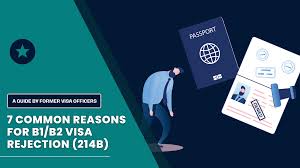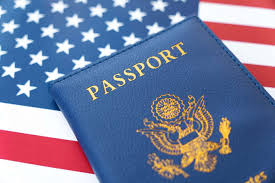
The process of obtaining a US visa can be complex and overwhelming for many applicants. Whether you’re planning a short visit or an extended stay, understanding the requirements and procedures is crucial to ensure a smooth application process. In this article, we will delve into frequently asked questions (FAQs) about US visas and explore the common reasons for ESTA visa denial. US VISA FAQ
US Visa FAQ
What is a US Visa?
A US visa is an endorsement placed in a traveler’s passport by a US consulate or embassy, allowing the individual to seek entry into the United States. There are various types of visas, each catering to different purposes, such as tourism, business, education, and employment.
What are the Different Types of US Visas?
- Nonimmigrant Visas: These are temporary visas for individuals who wish to enter the US for a specific purpose and a limited time. Examples include:
- B-1/B-2 Visitor Visa: For business (B-1) or tourism (B-2).
- F-1 Student Visa: For students attending academic institutions.
- H-1B Work Visa: For skilled workers in specialty occupations.
- J-1 Exchange Visitor Visa: For participants in exchange programs.
- Immigrant Visas: These are for individuals who intend to live permanently in the US. Categories include:
- Family-Sponsored Visas: For relatives of US citizens or permanent residents.
- Employment-Based Visas: For individuals with job offers in the US.
- Diversity Visa (DV) Lottery: For nationals of countries with low immigration rates to the US.
How Do I Apply for a US Visa?
The application process generally involves the following steps:
- Determine the Type of Visa: Identify the appropriate visa category for your purpose of travel. REASONS FOR ESTA VISA DENIAL
- Complete the Online Application (DS-160): For nonimmigrant visas, fill out the DS-160 form online. Immigrant visa applicants complete the DS-260 form.
- Pay the Visa Application Fee: Fees vary depending on the visa type.
- Schedule an Interview: Most applicants between the ages of 14 and 79 must attend an interview at a US embassy or consulate.
- Attend the Interview: Bring all required documentation, including your passport, application confirmation page, and supporting documents.
- Wait for Visa Processing: Processing times vary, so apply well in advance of your planned travel date.
What Documents Do I Need for My Visa Interview?
Documents typically required include:
- Valid passport
- DS-160 or DS-260 confirmation page
- Visa application fee receipt
- Photo (as per US visa photo requirements)
- Supporting documents (e.g., invitation letter, financial statements, proof of ties to home country)
What Questions Will Be Asked During the Visa Interview?
Visa interviews focus on determining the applicant’s eligibility and intent to return to their home country. Common questions include:
- Purpose of your trip to the US
- Duration of stay
- Details of your employment or studies
- Information about your family and ties to your home country
Reasons for ESTA Visa Denial
The Electronic System for Travel Authorization (ESTA) is an automated system that determines the eligibility of visitors to travel to the US under the Visa Waiver Program (VWP). While ESTA approval is generally straightforward, some applicants face denial. Understanding the reasons for ESTA visa denial can help applicants avoid common pitfalls.
What is ESTA?
ESTA is an online system that allows citizens of VWP countries to travel to the US for tourism, business, or transit for up to 90 days without obtaining a traditional visa. Travelers must apply for ESTA authorization before their trip.
Common Reasons for ESTA Visa Denial
- Incomplete or Incorrect Information: Providing inaccurate or incomplete information on the ESTA application is a leading cause of denial. Ensure all details match your passport and other official documents.
- Previous Visa Denials or Overstays: If you have been denied a US visa or have overstayed a previous visit, your ESTA application may be denied. These factors raise red flags about your intent to comply with US immigration laws.
- Criminal Record: Applicants with a criminal history, particularly involving moral turpitude, drug offenses, or serious crimes, are likely to face ESTA denial. Even minor offenses can result in rejection.
- Health Concerns: Certain medical conditions that pose a public health risk can lead to denial. The US authorities assess whether the applicant’s health condition could threaten public safety or require extensive medical treatment.
- Dual Nationality: If you hold dual nationality with a country that is not part of the VWP, particularly one subject to travel restrictions, your ESTA application may be denied. Countries like Iran, Iraq, Sudan, and Syria have been under such scrutiny.
- Security Concerns: Any indication of involvement in terrorist activities, espionage, or other actions that pose a security threat to the US will result in immediate ESTA denial.
- Overuse of ESTA: Frequently traveling to the US under ESTA without sufficient justification can lead to suspicion that you are using ESTA for purposes beyond tourism or business, such as working or studying, which requires a different visa.
- Travel History: Visiting countries that are known for harboring terrorism or having political instability can raise concerns about your intentions and result in ESTA denial.
- Economic Factors: Lack of sufficient funds to support your stay in the US can lead to denial. The authorities want to ensure that you can financially sustain yourself without working illegally.
- Employment Status: Unemployment or employment in a field that is seen as high-risk (such as freelance journalism in conflict zones) can raise questions about your travel intentions.
How to Avoid ESTA Visa Denial
To increase your chances of a successful ESTA application, follow these guidelines:
- Double-Check Information: Ensure all details on the application are accurate and complete. Cross-check with your passport and other official documents.
- Maintain a Clean Record: Adhere to all visa regulations on previous trips. Avoid overstays and comply with US immigration laws.
- Be Honest: Provide truthful answers to all questions. Misrepresentation can lead to denial and long-term bans on entering the US.
- Prepare Documentation: Have supporting documents ready in case additional information is requested. This includes proof of sufficient funds, travel itinerary, and evidence of ties to your home country.
- Review Travel History: Be mindful of your travel history and avoid visiting countries with known security risks before applying for ESTA.
- Seek Legal Advice: If you have a complex case, such as a criminal record or previous visa issues, consider consulting with an immigration attorney.
Conclusion
Navigating the US visa process requires careful preparation and understanding of the requirements. Whether you are applying for a traditional visa or seeking ESTA authorization, being informed about the process and common pitfalls can significantly improve your chances of success. By addressing the frequently asked questions about US visas and being aware of the reasons for ESTA visa denial, you can better prepare for your journey and avoid potential obstacles along the way.

